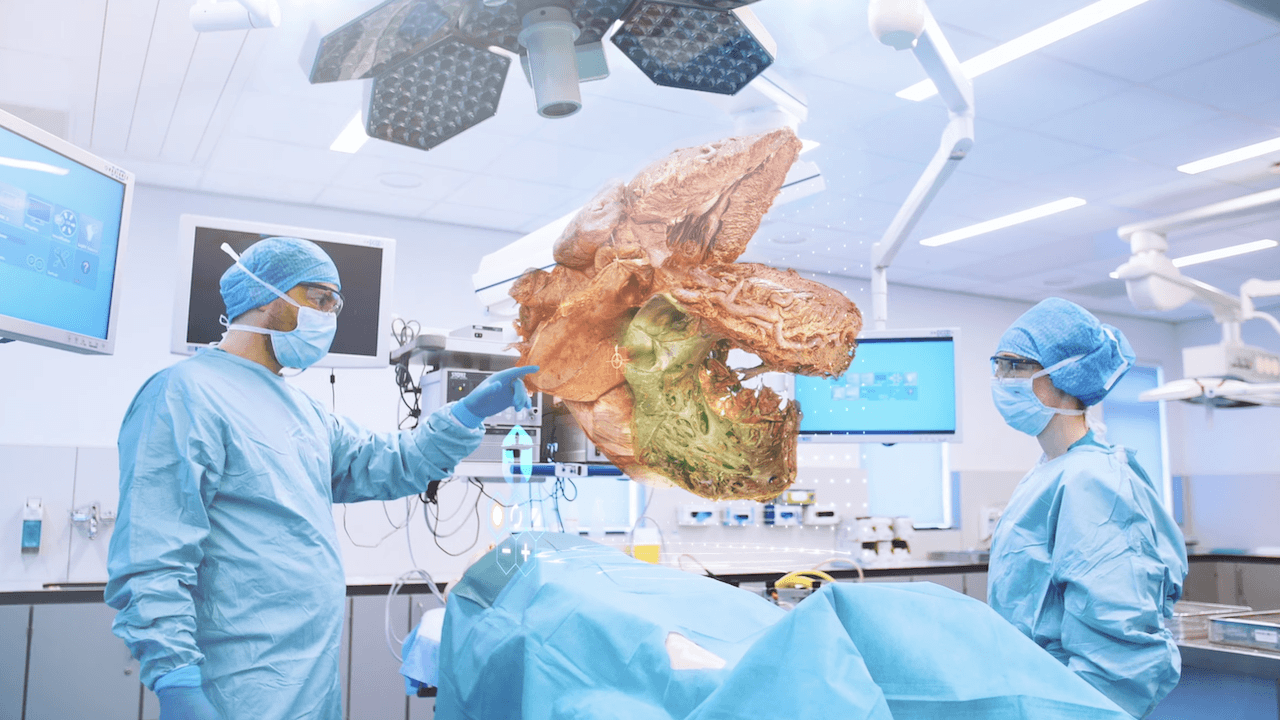German medtech spinout Enatom has received €900,000 to develop its holographic models of human anatomy, which give medical students with a VR headset the ability to study anatomical structures in 3D.
Many medical schools find it difficult to acquire human specimens to train students in dissection and other surgical techniques. Enatom’s mobile app and headset — already used in universities across six European countries — allow students to familiarise themselves with detailed models of anatomical structure before they step into the dissection room. Its technology does not substitute for in-person surgical or dissection training.
Enatom’s models have been developed using point-cloud techniques, which use data points within a 3D space to create accurate and detailed object representations that produces a 3D and interactive ‘streaming’ experience. In Enatom’s case, the data points come from photorealistic scans of real human specimens.
The funding will be used to expand Enatom's technical and sales teams The round was co-led by LUMO Labs, NOM and UNETI Ventures and follows earlier funding from G-Force Capital and Triade Investments. Enatom was spun out of University Medical Center Groningen, who also provided financial support.
Investment Manager at UNETI Ventures Wadim de Boon highlighted the platform's broader impact:
"Realistic anatomy education is essential for various medical courses. Enatom's 3D photorealistic platform has the potential to make these more accessible and efficient. We believe that will become valuable as it indirectly alleviates some pressure from the declining care capacity. We are excited to help Enatom realise its potential.”



Would you like to write the first comment?
Login to post comments